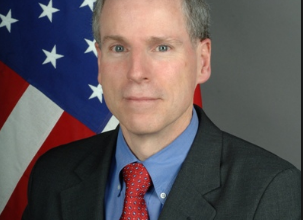The Syrian conflict has not only ruined the country, killed hundreds of thousands and displaced millions, but also fueled regional sectarian and ethnic tensions to unprecedented levels.
It would be difficult for peace talks to succeed without the backing of Saudi Arabia and Iran, yet there are no diplomatic relations between the two countries, which are involved in the Syrian conflict.
Meanwhile, last week US President Barack Obama visited Saudi Arabia to meet with Gulf leaders, and Secretary of State John Kerry met with Iranian Foreign Minister Mohammad Javad Zarif in New York during a UN climate-change summit.
Iran has complained of difficulties regarding implementation of the nuclear deal and access to the international banking system to encourage foreign investors.
“We do not stand in the way of foreign banks engaging with Iranian banks and companies,” Kerry said on Friday.
After Obama’s meeting with Gulf leaders last week, it is now possible for Iran and Saudi Arabia “to sit down at the table” and break the ice
Camelia Entekhabi-Fard
If his statement helps Iran’s economy, that may help in finding a solution to the Syrian conflict and the future of President Bashar al-Assad.
Assad’s fate
On Saturday, Iranian Intelligence Minister Mahmoud Alavi said Tehran had offered Assad’s family asylum in Iran, but Assad “declined,” saying his family “is like the rest of Syrian families and will remain in Damascus.”
This offer signifies important political changes in Iran and Syria, and that the Geneva talks can continue.
The Syrian opposition participated in the talks reluctantly, and based on their consultations with Turkey and Saudi Arabia.
If Obama’s visit last week satisfied his Gulf allies, Assad’s inclusion in a transitional government should not be a problem.
Obama told the BBC on Saturday that with just nine months left of his presidency he did not think the Islamic State of Iraq and Syria (ISIS) would be defeated.
However, he said the international community must continue to pressure all parties – including Russia, Iran and moderate opposition groups – “to sit down at the table and try to broker a transition.”
After Obama’s meeting with Gulf leaders last week, it is now possible for Iran and Saudi Arabia “to sit down at the table” and break the ice.
alarabiya.net




